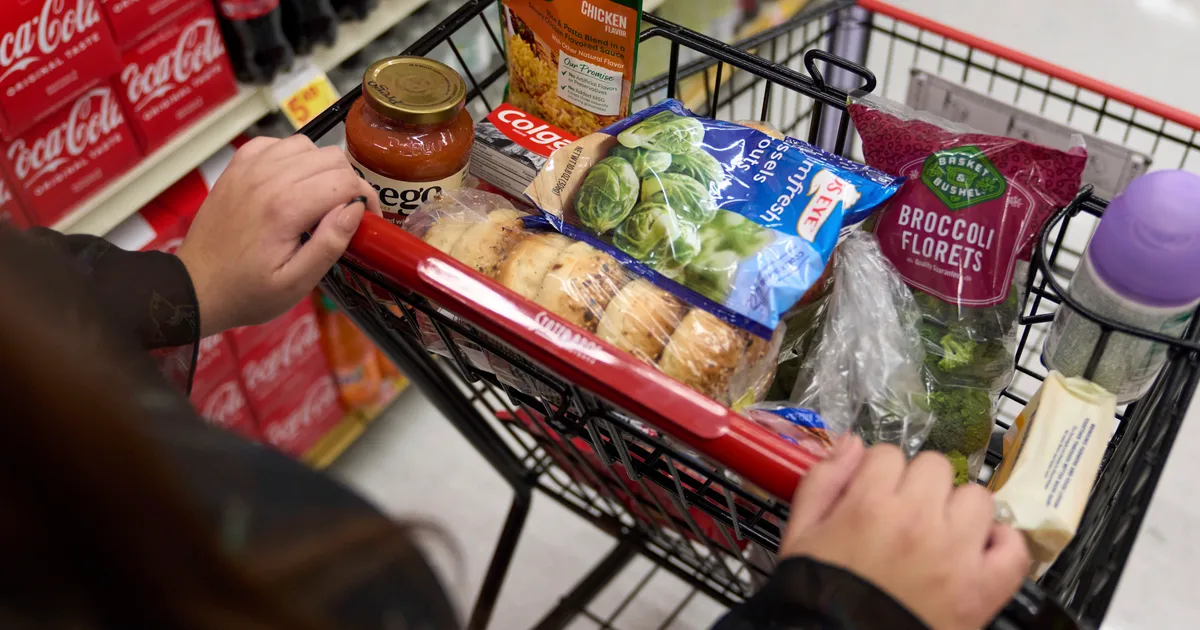Copyright HuffPost

The text was from the Illinois Department of Human Services, saying SNAP benefits for November would not be distributed because of the government shutdown. My stomach dropped before I even finished reading the message. Once you’ve known true hunger, your body will always remember. My wife and I have three kids whom we homeschool, which means every meal happens at home. That’s three meals a day, seven days a week. Breakfast, lunch, dinner. Advertisement Our regular SNAP allotment doesn’t cover everything, but it provides most of what ends up on our table. When it’s gone, I have to get extra creative by remixing leftovers, figuring out substitutions, visiting the food pantry and hoping what we have holds out until the end of the month. November makes this even more challenging. Thanksgiving is coming, a whole holiday revolving around food, and my daughter turns 16 the same week. This news makes those upcoming days of celebration feel more like a complicated math problem than a joyful occasion. I need to make something special happen when there’s already not enough. The thought of losing SNAP this month doesn’t just scare me. It breaks something open in my chest. I still catch myself wondering how I ended up here. I did what I was supposed to do. Graduated from high school early, earned my bachelor’s degree, went back to school to become a physical therapist. I was building a life that had direction and purpose, a life that was supposed to protect me from this kind of fear. Advertisement But chronic illness doesn’t care about plans. It doesn’t care how hard you’ve worked or how well you’ve planned. I’m not “lazy.” I’m not “uneducated.” I just got sick, and everything I’d built started to unravel. I went from helping other people heal to just trying to keep myself functioning. I rely on SNAP to feed my kids because my disability check runs out before the month does. I know what it feels like to live one broken system away from empty cupboards. When the system shakes, everything in our home trembles with it. *** I live the math of stretching groceries to the last dollar, of turning almost nothing into something nutritious. Like when my kids were little and the kitchen held nothing but a few small potatoes and some partially empty condiment containers. Advertisement We sliced the potatoes up thin, fried them in a little oil, and mixed the last of the mustard, ketchup, and mayonnaise into a sauce that somehow worked. My kids thought they were the tastiest, crispiest little fries in the world. I knew they were made from food most people would have thrown away. Or when the food pantry handed us a stack of tortillas, but nothing to fill them with. So we cut them into chips, fried them in oil and made salsa out of half-rotten tomatoes and jalapeños from the pantry box. We trimmed the bad spots, chopped what was good, and turned scraps into a meal. Desperation becomes resourcefulness because there’s no other choice. Or when we were living at a shelter and still waiting for SNAP to start, and someone stole the food we’d gotten from a local food pantry from the shared kitchen. I’d stood in line for more than two hours starting at 7 a.m. just to make it inside to “shop” for the frozen pulled pork I’d planned to turn into sandwiches. I remember sitting there, holding my babies, realizing I didn’t even have a few dollars left to buy them dinner. Advertisement I called my dad, packed the kids in the car and drove to his house empty-handed and ashamed. We sat at his kitchen table while he made us each a fried egg sandwich – simple, hot, and made with love. That is still the best sandwich I’ve ever eaten. Right now, millions of families are facing hunger as SNAP benefits are delayed during the government shutdown. And so many of them don’t have anyone to fall back on. When politicians argue over shutdowns, they talk about numbers, budgets and deadlines. But what they’re really deciding is whether my kids, and others like them, eat this month. Advertisement They call it temporary. I call it terrifying. Because hunger doesn’t pause while politics play out. When that text came in, it wasn’t just news. It was the sound of my own pulse and the memory of hunger waking up. I could physically feel the fear of my kids being hungry settle on my shoulders. I remembered the sound of my son asking, “Mommy, what’s for dinner?” and not having an answer that feeds him. All the times I’ve pretended to be full after eating less than my share so my kids could have seconds. A missed SNAP deposit isn’t an “inconvenience”; it’s a matter of survival. And policymaking without empathy isn’t policy; it’s cruelty. *** People with full fridges love to talk about the recipients of government programs like hunger is a moral failure. But they’ve never had to tell a child who is still hungry to “drink water.” They’ve never had to count change at the gas station just to get a loaf of bread. They’ve never had to tell their child the Easter Bunny skipped their house, or that there won’t be a birthday cake this year because there’s no money left. Advertisement They preach about “healthy eating,” but even when you want to eat healthy, it’s almost impossible to afford. Fresh produce costs more and spoils faster. Meat prices keep climbing. A single bag of grapes can cost the same as three boxes of pasta. You run out of flour, oil and eggs every month, and every time you replace them, it chips away at what little is left. Cooking from scratch isn’t cheaper when you’re poor. It just means you’re tired and still out of money. If it were really about health, we’d make healthy food affordable instead of punishing people for being poor. Advertisement People say, “My taxes pay for that,” but 89% of SNAP households with children and a working-age, non-disabled adult include at least one family member who works. They’re taxpayers too, just trying to stay fed in a system that was supposed to help. People like to talk about “tightening budgets,” but the truth is that families like mine already live in the margins. We make meals out of hope and half-ingredients, trade sleep for worry, and call it normal because there’s no other choice. They talk about our “choices,” but what they rarely mention is the strength it takes to keep showing up and finding ways to feed your kids, to stretch one more meal, to turn scarcity into something. Advertisement That isn’t dependency. It’s perseverance. It isn’t weakness. It’s resilience. And in a country where no family should be hungry, that kind of strength deserves respect. Molly Riexinger writes under the name Mimi Riexplorer on her blog, Midwest Mimi, where she shares stories about family, resilience and finding grace in the grit of everyday life.



